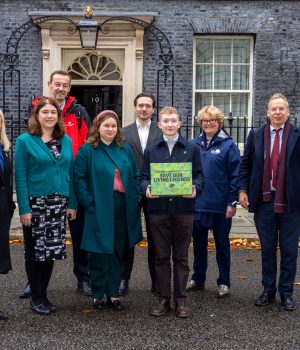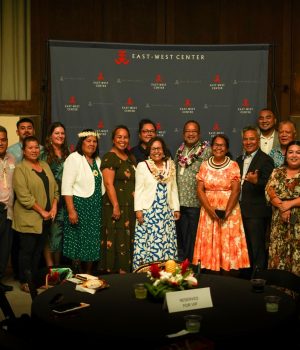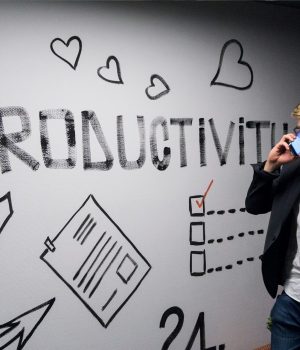“If you don’t ask, the answer is always no.” — Nora Roberts
Why is asking important?
In a keynote presentation I perform about the power of mindset, the first thing I talk about that is vital to success is to master the “ask”.
It’s so important to not be afraid to ask if you need help, if you have a question or if you want to know if someone you know knows someone with whom you are trying to connect.
Does the thought of this make you cringe? If so, you’re not alone. Most people hesitate when asking.
It could be the fear of rejection. It could be not wanting someone to think you are taking advantage of them.
Or maybe you think you don’t need anyone else’s help.
No matter the reasoning, most people aren’t comfortable making the ask, but without asking, there is no receiving.
studies show that people are more likely to say “yes” than “no” when asked for help
What studies say about the issue
A study entitled, If you need help, just ask: Underestimating compliance with direct requests for help by Francis J. Flynn, associate professor of organisational behaviour at Stanford Graduate School and Vanessa Lake, a Columbia Psychology PhD student, shares this fascinating finding:
A series of studies tested whether people underestimate the likelihood that others will comply with their direct requests for help.
In the first 3 studies, people underestimated by as much as 50% the likelihood that others would agree to a direct request for help, across a range of requests occurring in both experimental and natural field settings.
Studies 4 and 5 demonstrated that experimentally manipulating a person’s perspective (as a help seeker or a potential helper) could elicit this underestimation effect.
People can’t refuse a direct help request
Finally, in Study 6, the authors explored the source of the bias, finding that help seekers were less willing than potential helpers were to appreciate the social costs of refusing a direct request for help, attending instead to the instrumental costs of helping.
At the end of the day, people are more worried about what others will think of them if they say “no” versus what they will think of them if they say “yes.”
Asking never hurts
My personal philosophy has always been: It never hurts to ask.
What is the worst anyone is going to say? No?
Unless you’re asking someone to do something improper or illegal, if it’s a legitimate ask, why not try?
Interestingly, I’ve found that most of the “no’s” I’ve received eventually became “yes’s”. So they really weren’t a “no,” but actually a “not now.” Even if it is a definitive “no” – how bad is hearing that, really?
So they really weren’t a “no,” but actually a “not now.” Even if it is a definitive “no” – how bad is hearing that, really?
In my career, I have achieved so many things because I wasn’t afraid to ask.
I have two business mentors who are rock stars in their respective industries and charge an exorbitant consulting rate.
I have them on my cell phone and am able to call or text at any time for advice.
I’ve never taken advantage of the relationships and use the asks sparingly, but the value that comes from having the ability to reach out at will, is immeasurable.
You don’t really need to be an expert
Much of my success in business has come from the free publicity I was able to achieve on my own (without hiring a PR firm or pay for advertising).
Interestingly, what I’ve found about the PR profession is that it’s really all about asking. I have no formal PR training.
I was a double major in political science and German so I never studied it in college and I never worked in the field.
It was all very accidental, basically desperation because I didn’t have any money to hire someone to help promote and sell my product.
What I quickly learned is that you have to ask a journalist to cover your story. Your job is to make it enticing and newsworthy, but basically, it’s just another ask.
I’ve made a living by showing people how to ask for media coverage.
I have forged amazing relationships with people in the media by providing value to them in my asks, and I’ve become a trusted resource to journalists.
This has allowed me to gain repeated media exposure for my product – thus exposing it to millions of new, potential customers.
Asking for free publicity is what grew my business and turned it into an incredibly lucrative venture.
Professor Flynn of Stanford says,
“Our research should encourage people to ask for help and not assume that others are disinclined to comply. People are more willing to help than you think, and that can be important to know when you’re trying to get the resources you need to get a job done, when you’re trying to solicit funds, or what have you.”
Forget the fear and ask!
With this in mind, forget any fear of rejection or overstepping boundaries and believe that you are deserving to receive from an ask.
Take the risk and go for it! If you get a “no” or “not now,” move on and ask someone else or ask for something different.
Remember that to receive what we want; we have to ask for it and most people are willing to help us get what we need.
Please share your comments below and any success stories you’ve had from asking.
To learn more about the power of free publicity, follow PR for Anyone on FACEBOOK, TWITTER, and download a free chapter of Christina’s best-selling book, PR for Anyone™ 100+ Affordable Ways to Easily Create Buzz for Your Business HERE.
For more business tips, check our entrepreneurship section and subscribe to our weekly newsletters.






